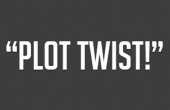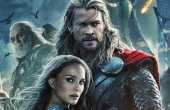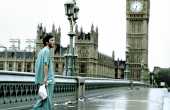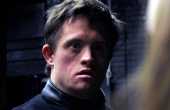Francesca Turauskis
Podcaster and writer condensing the world into words. Producer and Host of Seize Your Adventure. I do a lot of things to mask my laziness...
Contributor II
- Plebian Penman
- Lurker
- Pssst
- Hand Raiser
- Vocal
- Outspoken
- Sharp-Eyed Citizen
- Town Watch
- Detective Deskman
- Actor
- Article of the Month
- ?
- Articles
6 - Featured
5 - Comments
174
- Ext. Comments
81 - Processed
30 - Revisions
28
- Topics
14 - Topics Taken
1 - Notes
40
- Topics Proc.
36 - Topics Rev.
10
- Points
1576 - Rank
65 - Score
1115
Latest Articles
Latest Topics
Writer's Work: The Side Jobs of Famous WritersTennessee Williams worked as a caretaker, Robert Frost delivered newspapers and J.K.Rowling was a secretary. The idea of a penniless writer trying to make ends meet is well established, and many aspiring writers find themselves working multiple side jobs whilst sending off manuscripts to potential publishers. Look at the jobs that famous writers found themselves doing whilst they penned thier famous work, as an inspiration to budding writers.
|
anime Write this topicThe Theme of Transformation in Japanese Popular CultureWhilst transformations can be seen in many cultures, but i’ve noticed that it seems most prevalant in Japanese work. From popular cartoons such as Dragonball, Pokemon, Yu-Gi-Oh, through Studio Ghibli to video games like Super Mario, the idea of ‘leveling-up’ and improving as a physical transfomation, rather than just a skillful one, is very strong. Why is this the case? I would be intrigued to see if there is a link to Japanese theatre and mythology, and whether the use of such transformations in Western culture has been more common since such programs have become popular here.
|
literature Write this topicRussian Literature for the NoviceI would like to see a guide to the common style and structure of Russian literature. It would also be good to see some suggestions for a Russian literature novice to try reading.
|
literature Write this topicSuggested Holiday ReadingWith the summer holidays on the way, a run-down of recommended holiday reads would be interesting. It could be a list of particular titles that are set in holiday destinations, or information about travel writers that will give you itchy feet. Good titles might be ‘A Moveable Feast’ by Hemingway, ‘Tracks’ by Robyn Davidson or ‘Travels with Herodotus’ Ryszard Kapuscinski
|
film Write this topicProduct placement: The good and the badProduct placement is perhaps a necessary evil for films. It is not a new concept – it actually began in novels, including those by Arthur Conan Doyle and Jules Verne – but there are some films that do it well, some that don’t and some that do it tongue-in-cheek (Nescafe in Night Watch (2004) for example.) A look at some movies from each catergory would be interesting.
|
arts Write this topicWhy is it so hard to make musicals original?There is a plethora of musicals that are adapated from another source, from older ones such as Les Miserables, through the 90’s and 00’s hits such as The Lion King, Wicked and Billy Elliot to the recent Matilda and Charlie and the Chocolate factory. Whilst this is not unique to musicals, what is notable is that there is so very few original scripts to balance it. You could count the original musicals in the last 10 years on one hand (Book of Mormon and Avenue Q, which have the same makers.) It would be nice to see this from the pont for view of someone who is well versed in musicals, and to see if there is a reason for it beyond unoriginality.
|
film Write this topicThe Portrayal of The Bride in CinemaSo often in cinema woman are portrayed by their relationship to men. I thought it might be interesting to look at this through the use of women as brides, especially as quite a few female-led films have women in this role. Good films to look at might be any Dracula, The Corpse Bride (2005) Kill Bill Vol. 2 (2004)
|
literature Write this topicLiving in the Future: Classic sci-fi stories where their future is our presentAn analysis of films or literature that was set in the future when it was written, but is now our past/present. You could look at how accurate it is, or speculate if anything is a self-fulfilling prophecy (such as the Big Brother shows named after Orwell’s book.)
|
Latest Comments
| Can you Teach Someone how to Become a Writer? | |
Wow thank you, glad I could help! | Plot Twists in Fiction: Making a Story Standout |
Great article! I can imagine arguing about this with people later tonight… Parallel universes always remind me of the TV servies ‘Sliders’ where the first universe only had the smallest change of a red light meaning ‘go’ and a green light meaning ‘stop’. | Parallel and Alternate Realities; Fiction Tells us the Difference |
What is also interesting to think about is that Draco tried to befriend Harry at the start of school, and got turned down – he’s just feeling the burn for so many years! | Why Draco Malfoy is one of the Most Underrated Characters in 'Harry Potter' |
Thank you, I’m so glad you like it. You’ll be doing an article on detective fiction I assume? | Plot Twists in Fiction: Making a Story Standout |
Aw thank you! I think it is the same as anything, and it depends on your style of writing (and what you are writing). The Harry Potter series is a classic example where a writer (*purportedly) had the end in mind from the beginning, and pretty much worked around the Chekov’s Guns. You reach the end thinking ‘no way!’ A Death Twist might have to be pre-meditated, but something like the Poetic Justice could very easily come naturally. Whichever way you do it, editing and re-writes will make sure the twist fits. | Plot Twists in Fiction: Making a Story Standout |
Interesting article, thank you for writing. It is also interesting that the health aspects of the mother don’t seem to be represented as much as the ones for the baby. There are many women (myself included) for whom having a child could be very unhealthy, even dangerous or life-threatening. Every situation is different! | How TV Depicts Abortion: From Maude to Miranda |
You obviously feel passionately about this, but a comment on the article would have been more suitable for this forum. I think it raises some very interesting points about the representation of the reality of who gets abortions and why. | How TV Depicts Abortion: From Maude to Miranda |






I’m sure if we tried it in some Pygmalion fashion with a non-literary mind, we could prove once and for all that you can teach anyone to write well. Whether you could teach someone to be a literary genius, that is another matter!